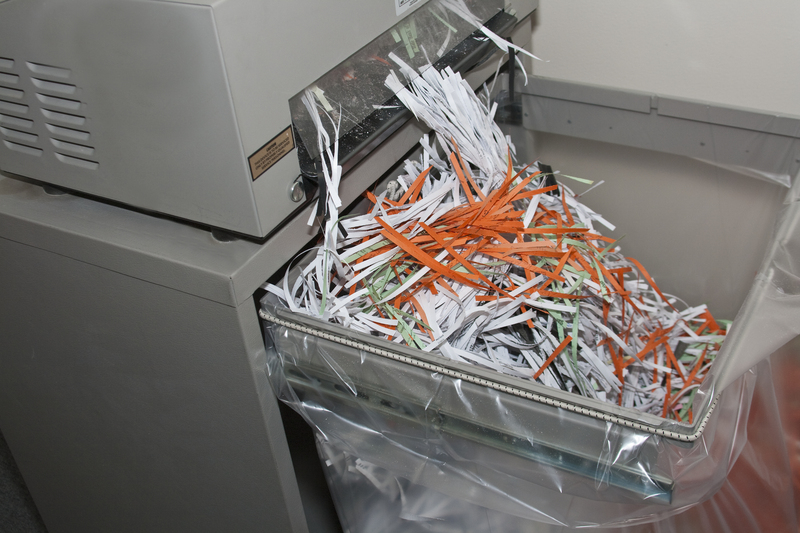The Ultimate Guide to Stress-Free House Moving
Moving to a new house is often listed as one of life's most stressful events. With so much to do and organize, it's no wonder that many people feel overwhelmed during the process. However, with careful planning and some expert tips, you can experience a smooth, stress-free house moving journey. In this in-depth guide, we'll walk you through everything you need to know to ensure a seamless transition to your new home.
Why House Moving Is So Stressful and How to Overcome It
When people think about house moving, they imagine packing, paperwork, and logistical hassles. The chaos can affect your physical and emotional well-being. Understanding why relocating causes anxiety and learning how to manage it is the first step to enjoying a peaceful move.
Common Stressors During a Home Relocation
- Time pressure: There's usually a tight schedule for vacating the old place and settling in the new one.
- Change anxiety: Leave behind familiar surroundings, friends, and routines.
- Financial concerns: Moving expenses, deposits, and unforeseen costs.
- Physical exhaustion: The actual packing, lifting, and cleaning can drain your energy.
- Logistical confusion: Coordinating movers, utilities, and timing requires attention to detail.
How to Ease the Stress of Moving
Instead of panicking, apply these core principles for a calm and organized house move:
- Start the process early -- Give yourself extra time for each task.
- Create a written moving plan -- Checklists and schedules reduce chaos.
- Ask for help -- Recruit family, friends, or professional movers.
- Focus on the positive -- Remember the benefits of your new home.

Stress-Free House Moving: Step-by-Step Guide
1. Start Planning Early
The key to a successful and stress-free home move is early preparation. Starting several weeks or even months in advance lets you:
- Compare moving service quotes
- Declutter and downsize belongings
- Gather supplies before prices spike
- Notify schools, utilities, and postal services of your move
Begin by making a moving timeline. Write down everything that needs to be done, and break it into weekly or daily tasks. A printable or digital checklist can provide structure and peace of mind.
2. Budget for Your Move
A relocation budget keeps finances under control and minimizes unpleasant surprises. Include the following in your moving expenses:
- Professional moving company fees
- Van rental and fuel costs
- Packing materials (boxes, tape, bubble wrap)
- Storage unit fees, if needed
- Cleaning services for your old and new homes
- Travel and accommodation (for long-distance moves)
- Insurance for fragile or valuable items
Set aside additional funds for unexpected expenses. With a solid budget in place, you'll make more informed decisions, avoid overspending, and enjoy stress-free home relocation.
3. Declutter and Organize: Less to Move, Less to Stress
One of the simplest pathways to a smoother move is to minimize your load before packing. Go through each room and divide items into categories:
- Keep -- Essential items for your new home
- Donate -- Gently used clothes, books, or furniture for local charities
- Sell -- Use online marketplaces to earn a little extra cash
- Trash/Recycle -- Broken, expired, or unwanted items
Decluttering simplifies packing, reduces moving costs, and gives you a fresh start in your new home. Label boxes with colored markers or stickers to keep things organized and make unpacking stress-free.
4. Packing Tips for a Stress-Free House Move
Packing can be the most overwhelming part of moving, but these pro tips will help make it manageable:
- Start with non-essentials: Pack items you use rarely, like seasonal decor or spare linens, first.
- Pack room by room: Keep boxes grouped by their destination to make unpacking easier.
- Label boxes clearly: Use large, bold letters and include special instructions for fragile items.
- Keep valuables and documents separate: Move passports, jewelry, and essential paperwork yourself.
- Don't overfill boxes: Heavy boxes are hard to move and more likely to break.
- Use soft items (like towels) to cushion fragile pieces.
Packing systematically and mindfully will allow you to avoid last-minute chaos and maintain order during the move.
5. Hiring Professional Movers vs. DIY Moving
Choosing whether to hire a professional moving company or handle the move yourself is a big decision. Consider these factors:
- Budget: DIY moving can be cheaper but involves a lot more work and stress.
- Distance: Long-distance moves are often best managed by experienced movers.
- Time constraints: If you have a tight schedule, pros can speed up the process.
- Heavy or fragile items: Professionals have the experience and equipment for safe handling.
- Physical ability: Moving is demanding--consider your own health and support.
Read reviews, get multiple quotes, and ensure any moving company you hire is insured and reputable. If you go the DIY route, enlist help and book your van or truck rental early.
Organize the Logistics of Your Smooth Home Move
Book Everything in Advance
Many aspects of your move require advance reservations:
- Moving trucks or professional services (especially during peak seasons)
- Elevator slots in apartment blocs
- Daycare or pet-sitting for moving day
- Cleaning services for both homes
The earlier you book, the more options and better prices you'll have.
Change of Address and Utility Transfers
To avoid hassles during or after your move:
- Notify the post office, banks, and government agencies of your new address.
- Transfer or set up new utility accounts well in advance (electricity, water, internet, etc.).
- Update subscriptions, loyalty programs, and online profiles.
A little preparation will prevent interruptions and lost mail during your house move.
Essentials Box: Your Stress-Free House Moving Survival Kit
Pack a box (or suitcase) with everything you'll immediately need at your new home:
- Toiletries and medication
- Bed linens and a change of clothes
- Important documents
- Chargers and small electronics
- Snacks and bottled water
- Basic kitchen supplies
- Children's favorite toys or comfort items
This "open first" box ensures a comfortable first night and takes the edge off the upheaval.
Please the Kids and Pets for a Calm, Family-Friendly Move
Moving can be confusing or upsetting for children and animals. Keep their routines as normal as possible leading up to the move. On moving day, arrange for childcare or a pet-sitter to keep them safe and out of the way. Involve children in packing their own things or decorating their boxes to give them a sense of control and excitement about the transition.
Moving Day: How to Stay Calm and In Control
Finally, the big day is here! Keep stress levels low with these smart strategies for an effortless house moving day:
- Eat a good breakfast and stay hydrated.
- Wear comfortable clothes and sturdy shoes.
- Have cash and important phone numbers handy.
- Supervise the movers and answer any questions clearly.
- Double-check each room before leaving your old place.
- Stay flexible: Things rarely go perfectly, so keep a sense of humor!
Take photos of your old and new homes' conditions for reference. Keep your essentials box close, and prioritize setting up beds and basic kitchen supplies first at your new house.
Unpacking and Settling In
Unpacking doesn't need to happen all at once. Take one room at a time, starting with essentials. Use your labeled boxes to quickly locate what you need. As you put things away, take your time to decide on new organization systems and storage solutions for a clutter-free new home.
Eco-Friendly and Ethical Moving Tips
- Use recyclable or reusable packing materials.
- Donate anything you don't need rather than tossing it.
- Opt for digital paperwork and receipts to cut waste.
- Support local charities or community organizations by gifting usable home goods.
Moving is a great opportunity to reduce your environmental impact and support your community.

Top Secrets for a Truly Stress-Free House Move
- Get plenty of rest: Fatigue increases stress and mistakes.
- Keep important contacts on your phone: Movers, realtors, emergency numbers.
- Have a backup plan: Weather, traffic, or last-minute changes can throw plans off.
- Treat yourself and your helpers: Order pizza, take breaks, and celebrate progress.
Conclusion: Your Smooth, Stress-Free Moving Experience Awaits
Moving doesn't have to be a nightmare! By planning ahead, staying organized, and maintaining a positive outlook, you can transform your house moving experience into an exciting new adventure. Remember, the stress mostly comes from uncertainty -- with a good checklist and the tips above, you'll face your house relocation with confidence and ease. Happy moving!
Frequently Asked Questions About Stress-Free House Moves
- What is the best time to move house for less stress?
Mid-week and mid-month dates are less busy and expensive. Avoid weekends and end-of-month rush. - How do I handle fragile items for a stress-free move?
Wrap each item carefully, use ample padding, and label boxes "fragile" clearly. Move extra-valuable items yourself if possible. - Should I hire a moving company or DIY?
It depends on your budget, time, and physical ability. Pros add convenience; DIY can save money for small, local moves.
If you found this guide helpful, share it with friends or family who are planning a move -- and remember, an organized move is a stress-free move!



